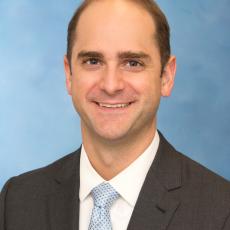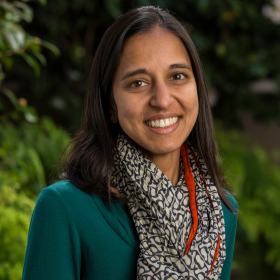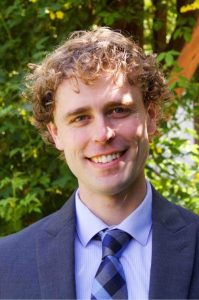The Weekly WIP has been canceled due the Winter Closure. We will resume on January 9, 2023.
Enjoy the holidays!
Each week, S-SPIRE hosts an in-person Work-In-Progress session (WIP) for faculty members and trainees to present their research and receive feedback on projects in every phase of development—from drafting specific aims pages, to parsing grant review committee comments, to abstracts/papers/methods in preparation.
Please refer inquiries to Ana Mezynski at mezynski@stanford.edu
Work In Progress Session
Each week, S-SPIRE hosts an in-person Work-In-Progress session (WIP) for faculty members and trainees to present their research and receive feedback on projects in every phase of development—from drafting specific aims pages, to parsing grant review committee comments, to abstracts/papers/methods in preparation.
Please refer inquiries to Ana Mezynski at mezynski@stanford.edu
Work In Progress Session
Pacific Coast Surgical Association Presentation Run
Presented by General Surgery Residents
Department of Surgery
Stanford University
Additional details to be added soon!
Each week, S-SPIRE hosts an in-person Work-In-Progress session (WIP) for faculty members and trainees to present their research and receive feedback on projects in every phase of development—from drafting specific aims pages, to parsing grant review committee comments, to abstracts/papers/methods in preparation.
Please refer inquiries to Ana Mezynski at mezynski@stanford.edu
The Weekly WIP has been canceled due the Martin Luther King Holiday. We will resume on January 16, 2023.
Each week, S-SPIRE hosts an in-person Work-In-Progress session (WIP) for faculty members and trainees to present their research and receive feedback on projects in every phase of development—from drafting specific aims pages, to parsing grant review committee comments, to abstracts/papers/methods in preparation.
Please refer inquiries to Ana Mezynski at mezynski@stanford.edu
Work In Progress Session
Pacific Coast Surgical Association Presentation Run
Presented by General Surgery Residents, Department of Surgery, Stanford University.
| Cintia Kimura | “Small Victories: Microlearning through Animation is an Effective Tool in Surgical Education.” |
| Charlotte Rajasingh | “Emergency Department Visits: An Improvement Opportunity for Ambulatory Surgery.” |
| John Cabot | “Expanding Eligibility for Abdominal Aortic Aneurysm Screening Increases Ultrasounds Without Impacting Diagnosis.” |
| Jonathan DeLong | “Like, Comment, Share: What Facebook Groups Bring to the Surgical Community.” |
| Beatrice Sun | “Travel Distance Affects Management of Patients with Malignant Bowel Obstruction.” |
| Jeff Choi | “Bridging the Machine-Learning Implementation Gap: LDM Injury Index, A Practical Algorithm to Quantify Injury Severity.” |
| Kenneth Perrone | “Physiologic recovery and subjective stress of performing operations: the observational whoop study.” |
Each week, S-SPIRE hosts an in-person Work-In-Progress session (WIP) for faculty members and trainees to present their research and receive feedback on projects in every phase of development—from drafting specific aims pages, to parsing grant review committee comments, to abstracts/papers/methods in preparation.
Please refer inquiries to Ana Mezynski at mezynski@stanford.edu

Presented by: Jonathan Scott, Assistant Professor, General Surgery, Department of Surgery, University of Michigan
Talk Title: “Cured into Destitution: Financial Toxicity Among the Acutely Ill and Injured.”
Bio: Dr. Scott’s health policy and health services research interests are focused on improving access to timely, affordable, high-quality surgical care for the acutely ill and injured. Dr. Scott has worked on improving our understanding of the impact of the recent health insurance expansion efforts of the Affordable Care Act (such as the Dependent Coverage Provision and Medicaid Expansion) on access to care and financial risk protection among trauma and emergency general surgery (EGS) patients—with a particular emphasis on marginalized patient populations. Dr. Scott is also working to understand how to optimize longer term outcomes after trauma and EGS by trying to understand major trauma and major EGS as chronic diseases, rather than isolated and acute events. Dr. Scott works with collaborators at CHOP, throughout IHPI, and is also heavily involved in the Michigan Center for Global Surgery.
Work In Progress Session
Title: “Internal S-SPIRE Center Round Table Check-In”
Each week, S-SPIRE hosts an in-person Work-In-Progress session (WIP) for faculty members and trainees to present their research and receive feedback on projects in every phase of development—from drafting specific aims pages, to parsing grant review committee comments, to abstracts/papers/methods in preparation.
Please refer inquiries to Ana Mezynski at mezynski@stanford.edu

Presented by: Manali Patel, MD, Assistant Professor of Medicine, Oncology, Stanford Health Care.
Talk Title: “Barriers and Facilitators in the Conduct of Multilevel Community-Based Cancer Research.”
Bio: Dr. Manali Patel is an Assistant Professor at Stanford in the Division of Oncology and a Staff Thoracic Oncologist at the VA Palo Alto Health Care System. She is a health services researcher and directs a research program that focuses on improving equitable delivery of value-based cancer care. She uses principles of community-based participatory research in her work and is the principal investigator of multiple externally funded awards such as the California Initiative to Advance Precision Medicine, the Patient Centered Outcomes Research Institute, and the National Institutes of Health. Dr. Patel serves on several national committees focused on improving cancer care delivery and value-based care. She earned her MD and Masters in Public Health at the University of North Carolina at Chapel Hill, followed by Internal Medicine Residency, Hematology and Oncology Fellowship and several research fellowships in addition to obtaining a Masters in Health Services Research at Stanford

Speaker: Liam Rose, PhD, Health Economist and Investigator with the Health Economics Resource Center at VA Palo Alto.
Talk Title: “An Introduction to Causal Inference with Observational Data.”
Bio: Dr. Rose’s research focuses on applied microeconomics with an emphasis on econometric techniques that can provide causal inference. His work focuses on access to care, utilization, and changes in health in the transitions to Medicare and retirement. Liam has a PhD in Economics from the University of California, Santa Cruz.
Each week, S-SPIRE hosts a Work-In-Progress session (WIP) for faculty members and trainees to present their research and receive feedback on projects in every phase of development—from drafting specific aims pages, to parsing grant review committee comments, to abstracts/papers/methods in preparation.
Please refer inquiries to Ana Mezynski at mezynski@stanford.edu